Sima cylinder said | "Crispy" brings a sweet crit!Cantonese: We know the fruits too much
Author:Yangcheng Evening News Yangche Time:2022.09.03

Text/Yangcheng Evening News all -media reporter Hui Tianjiao Aiyu
Recently, Shi Yan Longan as the mother, and the Zi Niang Xili lychee as the parent, and the new variety selected by the breeding and breeding of the belonging- "Crispy (SZ52)" came out in Guangzhou.
The advent of "crispy", through the traffic of longan and lychee, once ranked among the hot search list and brushed the circle of friends! Some netizens are concerned about "how the taste", and some netizens said "look more like 'mothers' -longan", and some netizens are so arrogant: "In one minute, I want to get its link!"
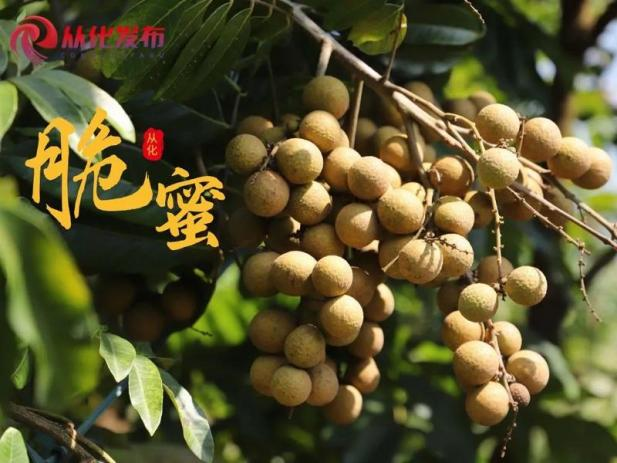
The "crispy" born through hybridization technology actually belongs to a long-eyed variety. At the same time, it has the characteristics of the tender and tender characteristics of litchi flesh. It is completely residue. Sweet fruit ".
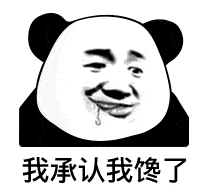
Experts said that the advantages of "crispy" hybridization make it have the characteristics of low temperature resistance and strong cold resistance, and it is easier to achieve high yield and stable production. Perhaps in the future Mid -Autumn Festival, TA in the distance can also eat Guangdong longan.
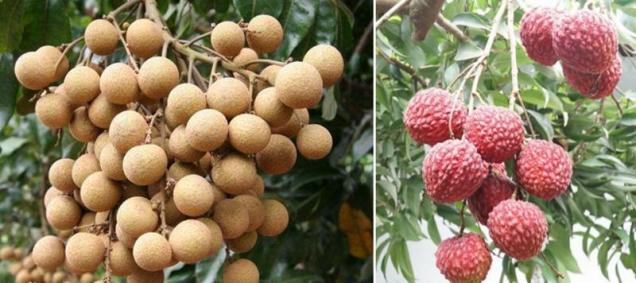
The left is Shi Yan Longan, and the right is the Zi Niang Xili lychee. Interviewee confidence
Guangzhou has been abundant since ancient times. Among them, Jiaguo enjoys a reputation. There are more than 500 fruit varieties alone, which can be called "the hometown of Jiaguo Lingnan." For thousands of years, the ancestors of Lingnan have been planting fruits on this fertile soil, which has continued to this day, and has accumulated distinctive agricultural cultural heritage.
Natural resources perfect bonus
One side of the water and soil raising one side "melon fruit"
Pull the time lens to the depth of history. The text records about Lingnan Fruit were first seen in the "Historical Records of the Biography of Freight" by the Western Han Dynasty. He reported in the book that Panyu (that is, Guangzhou) is one of the nine major cities in the country. Here is "Zhuang, rhino, 玳瑁, and fruit cloth. Eastern Han historian Wei Zhao's annotation of "fruit" is: "The genus of Longan, Li Shi (lychee)".
This shows that as early as the Western Han Dynasty, Guangzhou was an important "Jiaguo Town" in the south.
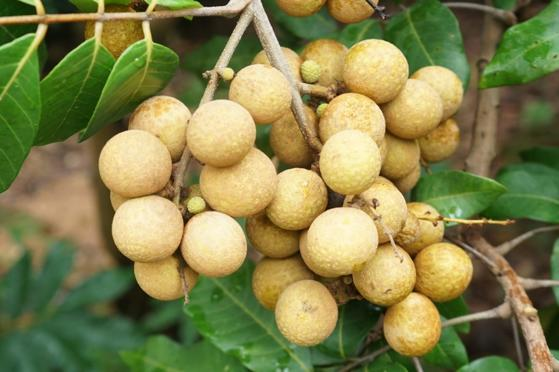
Crispy. Interviewee confidence
You may be curious, why did Lingnan produce a large number of fruits and good quality? This stems from the "reward" of nature. The Lingnan area has congenital and superior geographical conditions, and natural resources such as soil, water, and light are extremely rich, and provide a congenital and good environment for the cultivation of fruits. There are many types of fruits in Lingnan. In addition to the four "top flow" of litchi, longan, citrus, and banana, betel nut, olives, sugarcane, etc. are also famous fruits in the south.
The nucleus unearthed from the King of King of the South Vietnam also happened to be proof. During the Han Dynasty, Lingnan people had begun to plant and taste their own fruits. In 1975, a copper pot was unearthed in the Han Tomb of the Hanghan Tomb of Beihai City, Guangxi. The interior litchi, the fruit shell and the core are intact. So far, the earliest lychee specimen in archeological discovery.
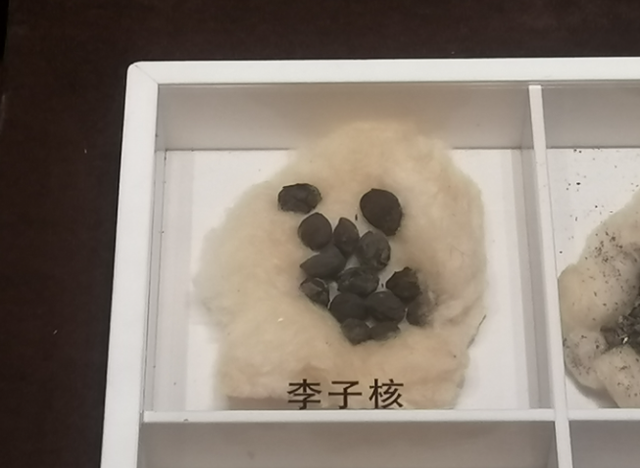
Lizi nucleus unearthed from the King of King of South Vietnam. Picture/Guangzhou Daily
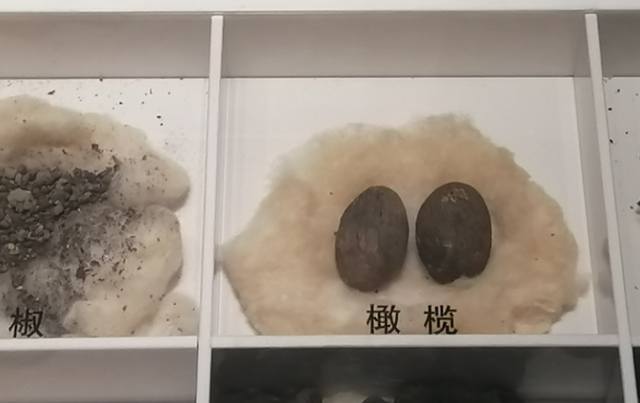
Olives unearthed from the King of King of South Vietnam. Picture/Guangzhou Daily
According to the "Xijing Miscellaneous Ji" records: In the early Western Han Dynasty, Zhao Yan, the king of South Vietnam, used litchi as a southern treasure to Han Gaozu Liu Bang. Probably because of this, the "top flow" litchi began to get out of fire, and many relatives and relatives were full of lychee. "Three Supplementary Yellow Maps" once recorded that after Emperor Hanwu settled in South Vietnam, some litchi trees were transplanted from Lingnan to Changan, and even a "Fu Lili Palace" was specially built. However, the subtropical fruit tree cannot adapt to the cold climate in the north after all, "the transplants are hundreds of plants, there are no lifetime." Foodists can only be in the snow in the north, missing litchi thousands of miles away in the south seasons.
During the Tang Dynasty, there were also excellent fruit such as nuclear lychee and citrus change in Lingnan. The "Beihu Lu" by Duan Highway is recorded: "The beauty of the southern fruit has litchi, and the Wuzhou volcanic people are familiar with Xia Chu, and the taste is small and inferior. The nuclear chicken eggs are large, and their fatness white does not diminish crystals, and the sexual hot fluid is also wonderful. "
Mainly, the volcanic lychee of Wuzhou is the first to mature in early summer, and the taste is pretty good. Among them, lychee in Gaozhou and Panzhou (now Maoming City, Guangdong Province) is the most excellent. The size is like eggs, sweet and delicious.
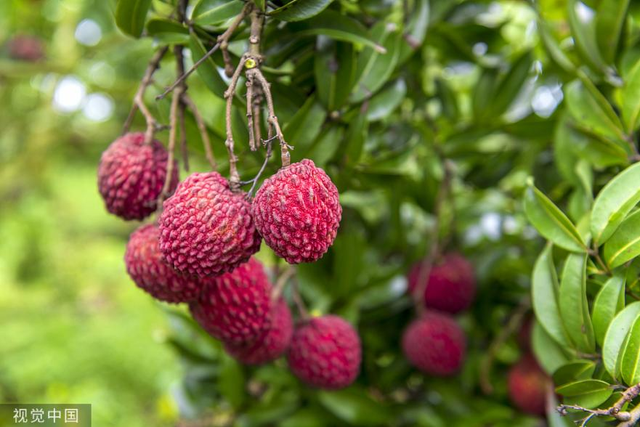
Volcanic lychee. Photo/Visual China
"Change the mandarin" also mentioned in "Beihulu": "NSW is out of citrus, and the buds are greater than the liters, and their skin is as thin as the orange of the cave. , The shape of the shape changes, because of the name. It is also like surpassing Huai as a cricket, but also water and soil. "
The "New State" mentioned here is today's Xinxing County, Yunfu City, Guangdong. The "transformer" produced here is actually a type of "mandarin". According to legend, after transplanting this tree for more than a hundred miles, the shape and taste of the fruit will change. The orange, orange, Huaibei is the same, "so it is named" transformed mandarin ".
It is with such innate natural conditions that Lingnan land has become the "source of the source" of famous fruits. The Lingnan people living in this land are a good hand to plant fruits.
Hard work and wisdom coexist
Breeding "Black Technology" in Lingnan planting
As early as the Han Dynasty, the people of Lingnan knew how to use scientific methods and simply picking fruits. As a common fruit tree in the Lingnan area of the Qin and Han dynasties, olives have dozens of feet in the Lingnan area, and it is very difficult to pick it. Eastern Han Yang Fu's "Fortune" is contained--
Olives are born in Nanhai Puyu, and the trees are high. In fact, there are jujube. There are peanuts in March. It is difficult to use the trees and wipe the trees with salt.
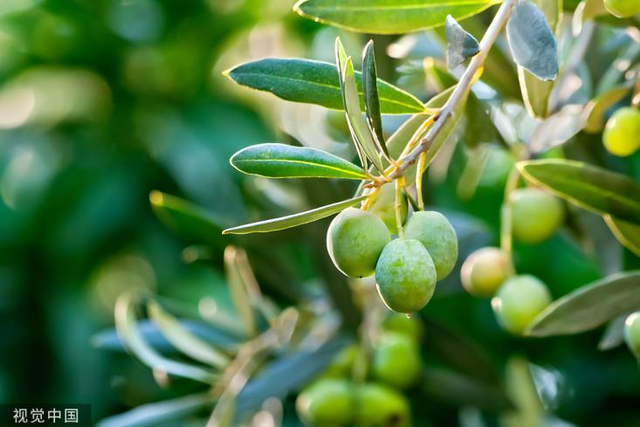
Olive. Data Map/Visual China
People conclude that the method of picking olives is to wipe the tree with salt, which can cause the olive trees to lose water and shrink, causing the fruit to fall off automatically. This method of picking is the summary of the experience of the working people, and it is also used by later generations. The Tang Dynasty Liu Ye's "Ling Biao Different Records" confirmed this incident -there are wild people, the sons are long, and the ladder cannot be trapped, but the bottom of the root is allowed, and the sodium salt is in it. Essence
It can be seen that although the method of rubbing salt is simple, it has won the love of the working people.
People are quite experienced in the protection of plants. They noticed that biolin -dependent and mutually restricted food chain relationships, and the use of biological natural enemies to prevent pests, thereby achieving the purpose of protecting plants.
Biological control in modern agricultural technology has been understood as early as the Qin and Han dynasties. As the earliest planting of "Southern Plants and Tree" in the Jin Dynasty, it once recorded that Lingnan people used ants to prevent pests when planting citrus trees-
The citrus is the genus of the orange, and the taste of sweet and beautiful is also. Those with yellow, those who have crickets, and the puppets are called the pot mandarin. The person who storage the ant in the city with the sac is like a thin flocculent, and the sacs are all branches and leaves. Ant red yellow, greater than Chang ants. If there is no such ant in the southern citrus tree, it is actually injured by the group.
Generally, the southerners in the Guangdong and Guangxi are usually sold in the market with a "ant" in a straw pack. Among them, the ant nests are light like cotton wool. Inside, sell it with the ant nest. This ants are red and yellow, which is larger than common ants. If there is no such ant in the south, the fruits will be eaten by various pests.
Yellow Ant. Data Map/Visual China
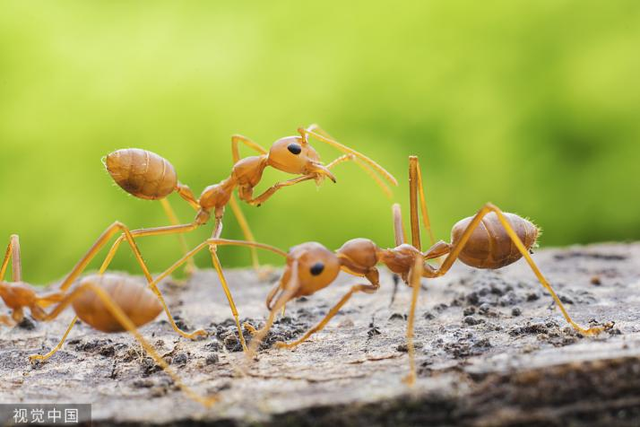
The "ant" recorded in the article is exactly the yellow ants. The real purpose of buying this ant is to invite it to "dinner". The yellow ants are different from ordinary ants. They are a kind of carnivorous ant, which mainly predate pests. Coincidentally, the breeding period of yellow ants is basically the same as the development period of citrus pests, and it has innate "blood suppression" to the breeding of pests.
It is said that this is the earliest record of biological control in the world. The biological control method is used to treat insects with insects. This pure natural method is often the best choice for the relationship between man and nature. It avoids a series of problems such as ecological destruction and environmental pollution. It is worth mentioning that the method of preventing and controlling pests in Lingnan has been in use.
Dry and honey 饯 came into being
The period of "appreciation" is continuously extended
With the development and progress of productive forces and the improvement of people's living standards, simple planting, picking, and consumption cannot meet people's requirements for taste fruit. The secondary processing of fruits also appears, such as boiled, drying, honey, etc. It not only enriches the method of eating fruits, but also extends the storage time of the fruit, so that more people can taste Lingnan fruits.
"Fortune" once recorded the process of drying olives: cutting its skin, cooking its skin, cooked and consoling, as hard as jujube.
In just a few words, it proves that the Han Dynasty people had "unlocked" the olives to eat! Of course, fruits can not only make dry results, but also be used as honey. Eat in the mouth, sweet in the heart, and the happiness is greatly improved.
Five concentrations, as big as papaya, yellow, crispy flesh, extremely sour, ... with honey, sweet and beautiful, out of the South China Sea.
—— Jin · 嵇 嵇 —— —— —— —— ——
Cafe is five concentrations. Data Map/Visual China
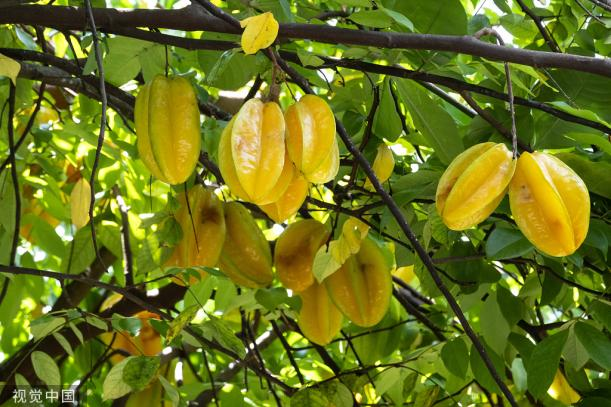
This way of making honey has been circulating. When the Song Dynasty, Su Shi, when eating rice dumplings, tasted the bayberry honeypot in the rice dumplings: "See Lu Orange in the only disk, and when you get bayberry in the dumplings."
The "Beihu Lu" of the Tang Dynasty highway mentioned the processing method of Hongmei. It was the earliest document recorded by chocolate flowers for dyed honey: "Lingnan plum, less than the left of the river, lived in it, mixed with chocolate flowers, It is exposed to salt, and Mei is dyed by the Hibiscus Flower, and its color is cute. There are also big plums, carved bottles and cans, and the juice stains are also very crispy. " After the coloring of Zhu Mihuan, she added a bit of artistic atmosphere.
Although ancient planting techniques were not advanced, the hard -working and simple labor people still planted Lingnan Jiaguo, which are exclusive to this soil with their own wisdom and hands. With the continuous improvement of the cultivation system and the level of planting, the crispy fruits are born. It is conceivable that Lingnan Guagui will continue to be sold throughout the country, moving towards the world, and becoming a sweet existence of people's minds.
references:
The official website of Beihai City Library, "Historical Culture of the Maritime Silk Road"
Dongfang.com, "Ten strange mixed fruits, illegitimate children in the fruit industry, how many types have you eaten? "
Guangzhou Daily, "What are these pepper pepper unearthed in the Han tomb of Guangzhou? "
Maoming.com, "Summer, come to Maoming to taste the same litchi that Yang Guifei has eaten"
Wu Huizhu, "Plant Resources and Use of Lingnan during the Han and Tang Dynasties"
Guangzhou Daily, "Reading Guangzhou · Yueyun 丨 Lingnan Jia Guo Haihai Haikawa Cicada and Linglong Pets for Thousands of Years"
Source | Yangcheng Evening News · Yangcheng School
Editor -in -law | Chen Wanyun
- END -
Dunhuang: Drifting Books into the Police Camp Cultural Book Fragrance Source: Jiuquan Daily 2022-07-03 22:
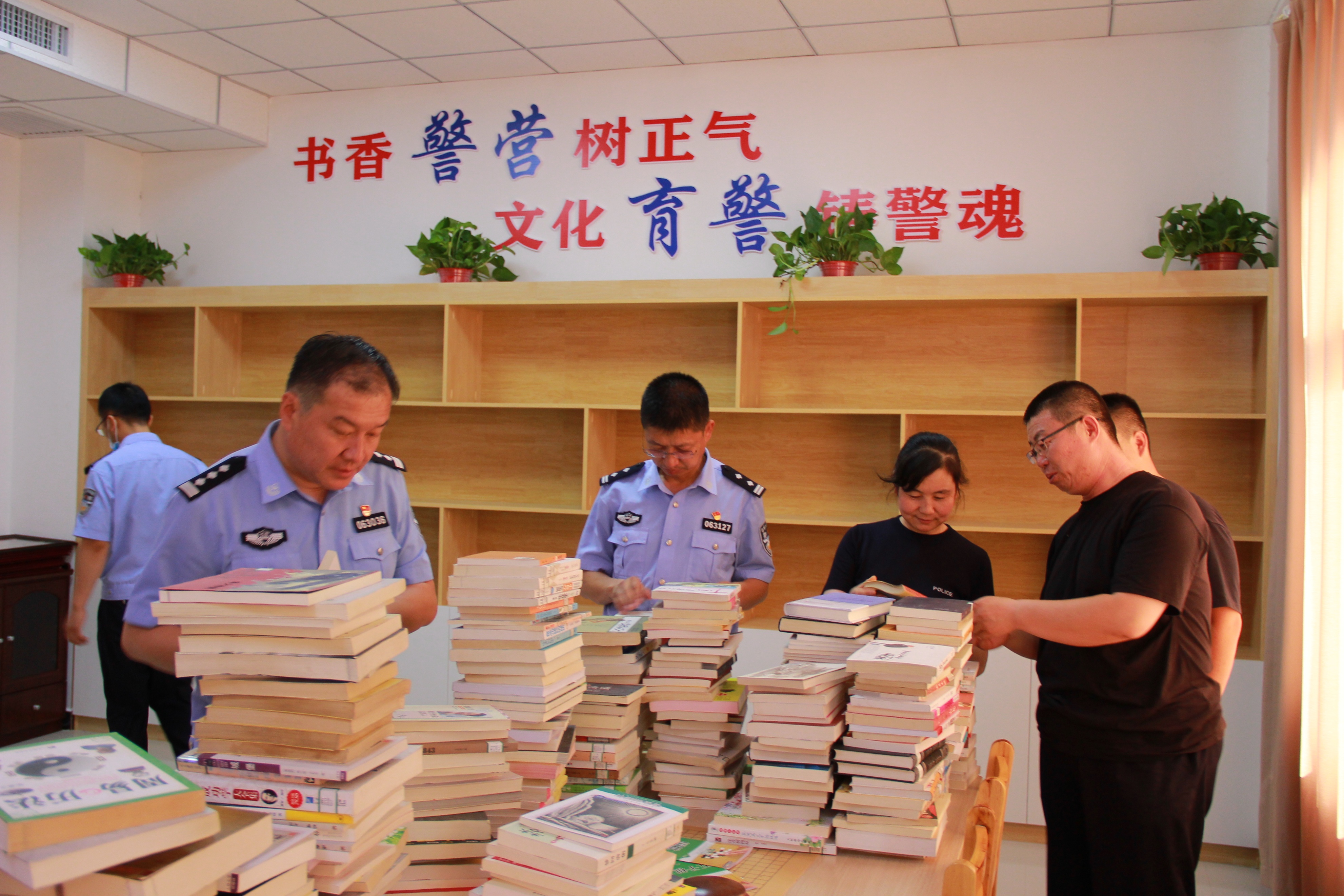
Recently, the Dunhuang City Library entered the Dunhuang City Public Security Bure...
One day | Let the heart have nothing to do, such as the long flow of water
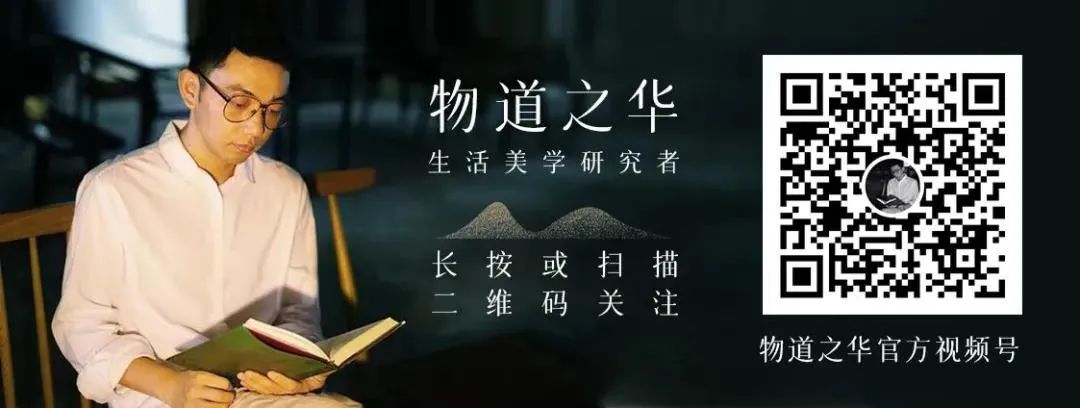
If people can firmly think in their hearts, do not compare, do not obey, not be af...